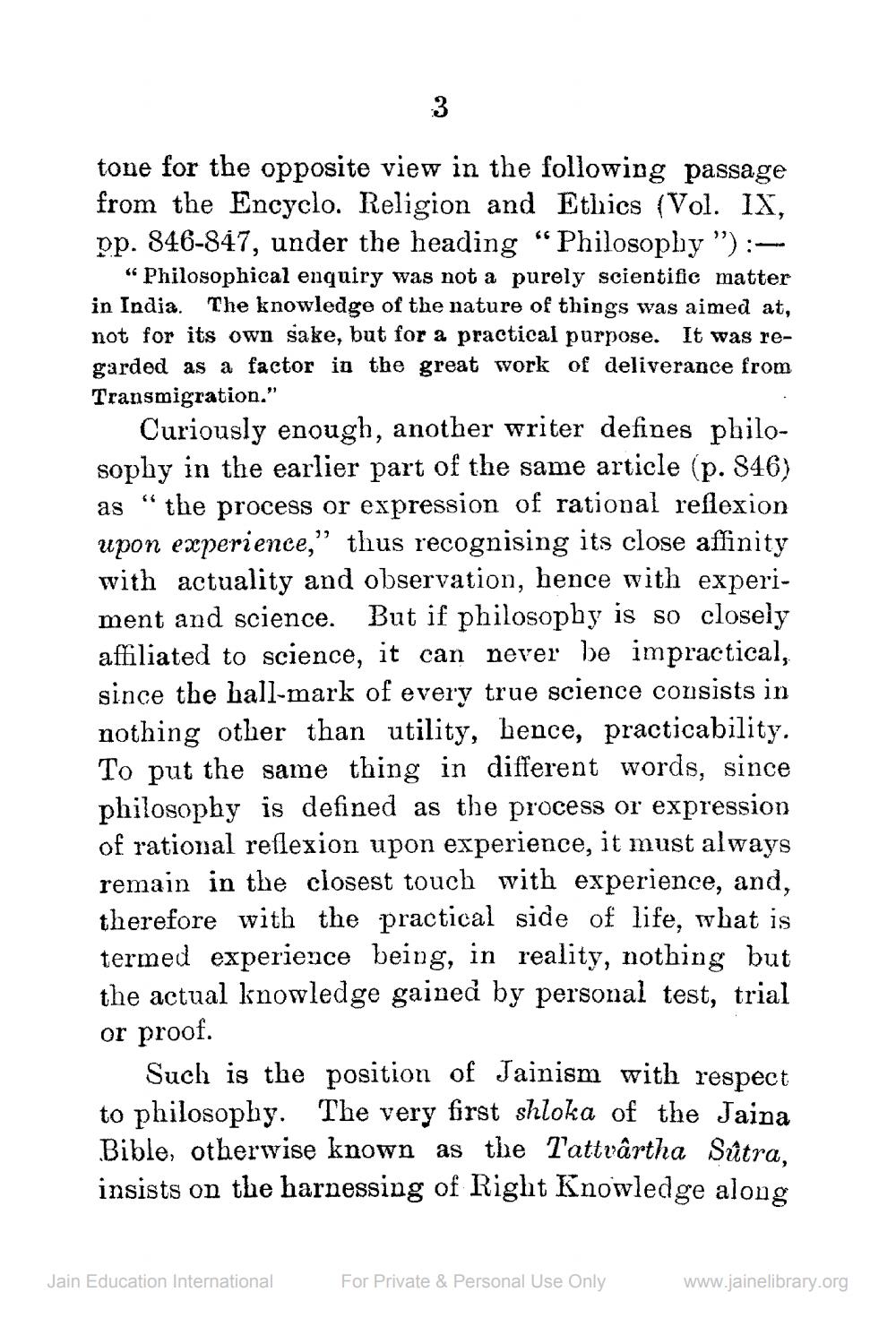Book Title: Sacred Philosophy Author(s): Champat Rai Jain Publisher: Champat Rai Jain View full book textPage 6
________________ tone for the opposite view in the following passage from the Encyclo. Religion and Ethics (Vol. IX, pp. 846-847, under the heading “Philosophy"): “ Philosophical enquiry was not a purely scientific matter in India. The knowledge of the nature of things was aimed at, not for its own sake, but for a practical purpose. It was regarded as a factor in the great work of deliverance from Transmigration." Curiously enough, another writer defines philosophy in the earlier part of the same article (p. 846) as “the process or expression of rational reflexion upon experience,” thus recognising its close affinity with actuality and observation, hence with experiment and science. But if philosophy is so closely affiliated to science, it can never be impractical, since the hall-mark of every true science consists in nothing other than utility, hence, practicability. To put the same thing in different words, since philosophy is defined as the process or expression of rational reflexion upon experience, it must always remain in the closest touch with experience, and, therefore with the practical side of life, what is termed experience being, in reality, nothing but the actual knowledge gained by personal test, trial or proof. Such is the position of Jainism with respect to philosophy. The very first shloka of the Jaina Bible, otherwise known as the l'attvärtha Sútra, insists on the harnessing of Right Knowledge along Jain Education International For Private & Personal Use Only www.jainelibrary.orgPage Navigation
1 ... 4 5 6 7 8 9 10 11 12 13 14 15 16 17 18 19 20 21 22 23 24 25 26 27 28 29 30 31 32 33 34 35 36 37 38
